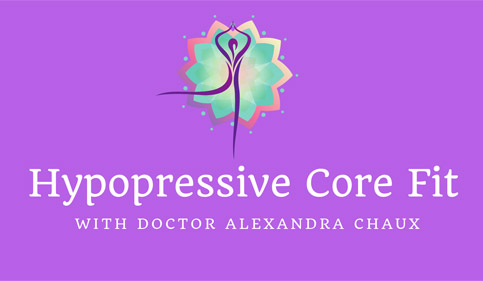After you have your baby, you might find that your belly has taken on an entirely new look. Sure, there’s saggy skin and stretch marks, but there may also be a persistent pooch that just won’t go away, even months (or years) after you’ve given birth. If that’s the case, you may have disastasis recti, a condition when your abs essentially disconnect that affects many moms.
“Diastasis recti is the separation of the rectus abdominus – your six pack – muscles in the midline,” Dr. Katerina Gallus, MD, a plastic surgeon who specializes in skin reconstruction tells Romper. It’s like the middle finger that life gives you after you’ve had a baby, and apparently, it’s pretty common: A study published in the National Institutes of Health found that more than 60% of women have it, and pregnancy is typically the culprit.
Apart from potentially being somewhat unsightly to some, diastasis recti can also have medical complications. “Diastasis recti can lead to many health complications such as persistent lower back, abdominal, and pelvic pain,” Dr. Alexandra Chaux, a doctor of Physical Therapy at Hypopressive Core Fit in Thousand Oaks, CA, tells Romper. “Other complications include weak pelvic floor muscles, which can lead to stress urinary incontinence, fecal incontinence, and pelvic organ prolapse.” Ugh.
You might be surprised to learn that many celebs have come forward to talk about diastasis recti, too. Actress Kate Hudson revealed in a recent Instagram story that she was “still trying to reconnect,” referring to her attempts to get her abs back to where they were pre-baby, reported People. Kelly Rowland told Shape about her battle with it. Other actresses, including Drew Barrymore and Jennifer Garner, and even professional athletes, like runner Stephanie Bruce, have all been forthcoming about their run-ins with diastasis recti.
So does that mean that you’re always going to look like you’re 5 months along? Not necessarily. Exercise can help rebuild those muscles that are seemingly no longer intact. “It can actually be good to do abdominal exercises to strengthen your core muscles, but you need to be careful not to exercise your abdominals the wrong way,” Dr. Alison Mitzner, a board-certified pediatrician, explains to Romper. “Core workouts and exercises that help you breathe in or hold your abdomen in help, such as planks and bridges.”
But if you think that some hardcore crunches can quickly snap things back, think again. As it turns out, they’re the worst thing you can do to try to make your tummy more taut. “You can actually do more damage than good,” warns Mitzner. “Exercises like stomach crunches and sit-ups can exert more pressure on the abdomen, which can lead to more separation.”
And then, there’s plastic surgery. If you’re at a weight that you’re comfortable with, (and try as you might, cannot lose that belly bulge with exercise), some women do turn to plastic surgery. “Surgery is an option to correct the diastasis and is part of the tummy tuck (abdominoplasty) procedure,” explains Dr. Gallus. “In the procedure, lower abdominal excess skin is removed and the diastasis is repaired with a suture to close the gap.”
In many cases, though, you can somewhat improve your diastases recti non-surgically. “It can take time but with the right exercises and effort it can improve,” says Dr. Mitzner. So discuss the issue with your OB-GYN to determine what the best options are for you.
Studies referenced:
Sperstad, J., Tennfjord, M., Hilde, G., Ellstrom-Engh, M., Bo, K. (2016). Diastasis recti abdominis during pregnancy and 12 months after childbirth: prevalence, risk factors and report of lumbopelvic pain. https://www.ncbi.nlm.nih.gov/pmc/articles/PMC5013086/
Experts:
Dr. Katerina Gallus, MD, plastic surgeon who specializes in female reconstructive surgery at Restore Plastic Surgery in San Diego, CA
Dr. Alexandra Chaux, doctor of Physical Therapy at Hypopressive Core Fit in Thousand Oaks, CA
Dr. Alison Mitzner, MD, board-certified pediatrician
This article originally appeared at romper.com.

